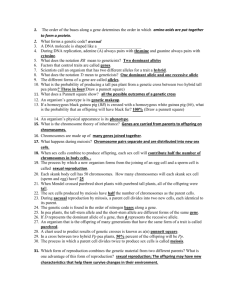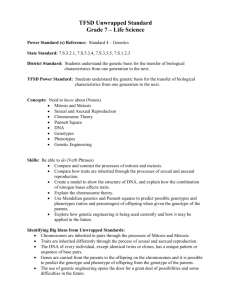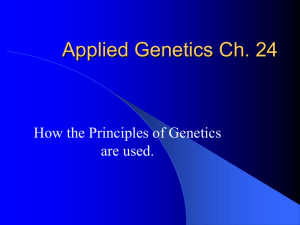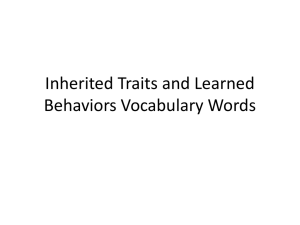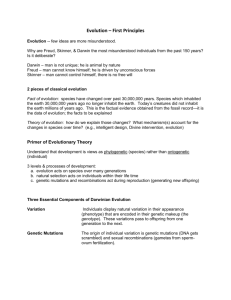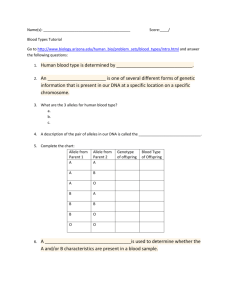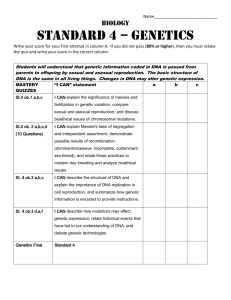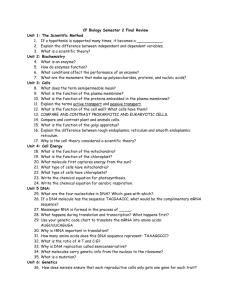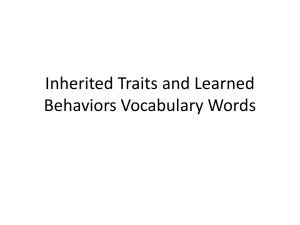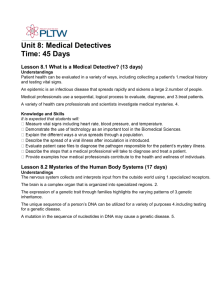Genetics Vocabulary
advertisement
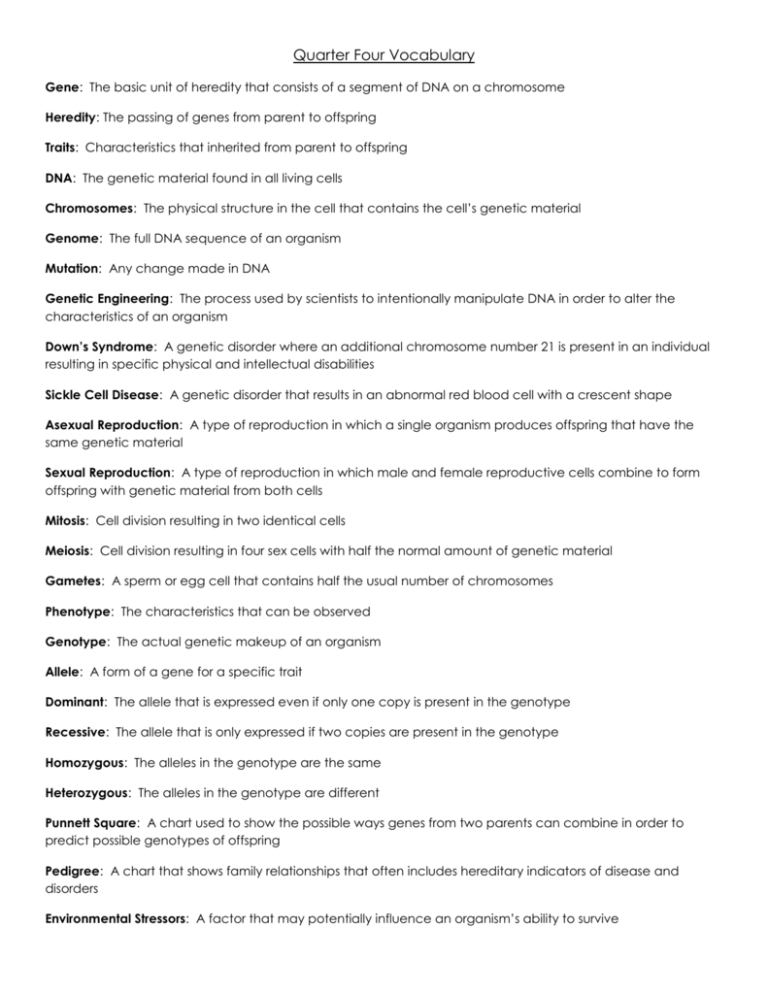
Quarter Four Vocabulary Gene: The basic unit of heredity that consists of a segment of DNA on a chromosome Heredity: The passing of genes from parent to offspring Traits: Characteristics that inherited from parent to offspring DNA: The genetic material found in all living cells Chromosomes: The physical structure in the cell that contains the cell’s genetic material Genome: The full DNA sequence of an organism Mutation: Any change made in DNA Genetic Engineering: The process used by scientists to intentionally manipulate DNA in order to alter the characteristics of an organism Down’s Syndrome: A genetic disorder where an additional chromosome number 21 is present in an individual resulting in specific physical and intellectual disabilities Sickle Cell Disease: A genetic disorder that results in an abnormal red blood cell with a crescent shape Asexual Reproduction: A type of reproduction in which a single organism produces offspring that have the same genetic material Sexual Reproduction: A type of reproduction in which male and female reproductive cells combine to form offspring with genetic material from both cells Mitosis: Cell division resulting in two identical cells Meiosis: Cell division resulting in four sex cells with half the normal amount of genetic material Gametes: A sperm or egg cell that contains half the usual number of chromosomes Phenotype: The characteristics that can be observed Genotype: The actual genetic makeup of an organism Allele: A form of a gene for a specific trait Dominant: The allele that is expressed even if only one copy is present in the genotype Recessive: The allele that is only expressed if two copies are present in the genotype Homozygous: The alleles in the genotype are the same Heterozygous: The alleles in the genotype are different Punnett Square: A chart used to show the possible ways genes from two parents can combine in order to predict possible genotypes of offspring Pedigree: A chart that shows family relationships that often includes hereditary indicators of disease and disorders Environmental Stressors: A factor that may potentially influence an organism’s ability to survive
